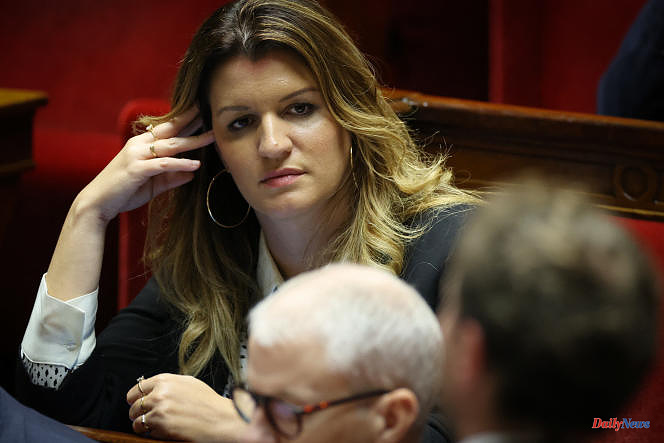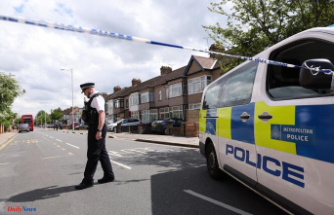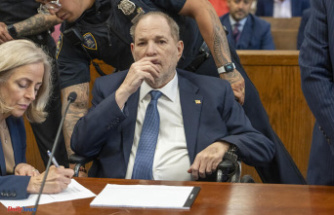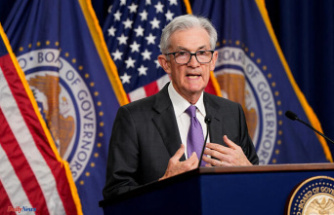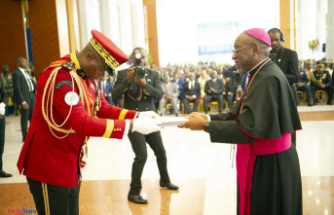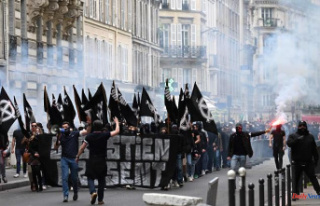The Senate commission of inquiry responsible for shedding "full light on the operating procedures" of the Marianne fund begins its work on Tuesday, May 16.
The National Financial Prosecutor's Office (PNF) had already opened, on May 4, a judicial investigation after the revelations of the weekly Marianne (homonym, but unrelated to the offending fund), France Télévisions and Mediapart reporting a management opaque of the subsidies granted under this fund, launched in 2021 by Marlène Schiappa to fight against radicalization.
The judicial investigation relates in particular to suspicions of "embezzlement of public funds", "breach of trust" and "illegal taking of interests". Summary of the main issues surrounding this case.
"With 2.5 million euros, we can do a lot of things to defend the values of the Republic", declared in April 2021 Marlène Schiappa, then Minister Delegate for Citizenship - she is now Secretary of State in charge of the social and solidarity economy and associative life - by launching a public fund intended to finance projects to "promote republican values" and "combat separatist discourse".
Led by the interministerial committee for the prevention of delinquency and radicalization (CIPDR) under the aegis of the minister, the Marianne fund was created six months after the assassination of the teacher Samuel Paty in October 2020 by a young man radicalized.
The purpose of this call for projects was to award grants to structures (associations, schools, cultural establishments, etc.) setting up initiatives "aimed at young people aged 12 to 15 exposed to separatist ideologies" and aimed at "responding to the separatist propaganda and conspiratorial discourse online".
In total, seventeen structures benefited from 2.02 million euros (out of the 2.5 million planned), including associations such as the League against racism and anti-Semitism (Licra), the Conspiracy Observatory of conspiracy Watch, the Union of Societies for Physical Education and Preparation for Military Service (USEPPM) or the association Rebuild the Common. The latter two received the highest subsidies.
On March 29, 2023, a joint investigation by France Télévisions and Marianne magazine revealed irregularities in the allocation of grants. Rapid designation procedure, opacity around the structures chosen and the amounts allocated, suspicion of favouritism, questionable productions... the investigation was particularly interested in the USEPPM association, and its "iLaïc" program, which obtained the envelope the largest, 355,000 euros.
According to these media, the endowment was mainly used to pay the two leaders of the association, including the essayist Mohamed Sifaoui, up to 120,000 euros net. Part of this public subsidy also financed the rental of an office located in the very chic avenue Montaigne in Paris, reveals Marianne.
Another element brought to light, public money financed a project with an ultimately unconvincing result: thirteen videos on YouTube not exceeding 200 views, an Instagram account followed by 155 people, or even a Facebook account followed by five people. Finally, the survey revealed a close relationship between the association and Christian Gravel, secretary general of the CIPDR.
The Mediapart site reported other irregularities concerning the second best-endowed structure: Rebuild the common (300,000 euros). According to him, this young association created in October 2020 produced, during the 2022 election campaign, political content unfavorable to opponents of President Emmanuel Macron. Among the disparaged political figures was the mayor of Paris, Anne Hidalgo, then a socialist presidential candidate.
Another investigation by the site revealed that three collaborators of Ms. Schiappa, including her director of the cabinet, had participated in the selection of the beneficiaries of the Marianne fund and that the minister's advisers would have encouraged Mohamed Sifaoui to apply even before the official announcement of the project. "It was the members of Marlène Schiappa's cabinet who insisted that I take part in the citizen response", assured the person concerned to Mediapart.
Marlène Schiappa provided her first explanations in a press release published on April 7. She rejected any accusation of favoritism and denied her involvement in the choice of the beneficiaries of this fund: "Of all the applications received (…), seventeen were selected by a selection committee. (…) Wrongly asserting that it was an ad hominem decision by Marlène Schiappa is totally false. A surprising statement, according to the magazine Marianne: in June 2022, the minister claimed not to have "proceeded with the selection", but did not deny her involvement, specifying that "it was the administration that went through the files and proposed breakdowns which my firm and I obviously validated”.
Mohamed Sifaoui also issued a defense statement on April 12 in which he rejects any "cronyism" with Marlène Schiappa and claims to have "absolutely nothing" to blame himself for: "I received a salary (…) in return for a job well and truly done, ”he reacted, announcing that he had filed a complaint for slanderous denunciation.
The family of Samuel Paty expressed their indignation and said they were "particularly shocked" by the revelations of the press, believing that the name of the teacher could "in no case and in no way be the instrument of such acts".
The day after the first revelations, the Secretary of State responsible for citizenship, Sonia Backès, who succeeded Ms. Schiappa in this post, announced that she had seized the General Inspectorate of Administration (IGA) for an audit on the management of the Marianne fund. The IGA must submit its report at the end of June.
Three reports were then sent to the Paris prosecutor. Christian Gravel, head of the CIPDR, sent a report to the Paris public prosecutor's office under article 40 of the code of criminal procedure - which requires public officials to inform the public prosecutor "without delay" when they acquire "knowledge of a felony or misdemeanor" in the performance of their duties. Just like the leader of the deputies of La France insoumise, Mathilde Panot, who announced on April 14 that she had sent a letter to the public prosecutor of Paris. Directly targeted by content from the association Reconstruire le commun, Anne Hidalgo announced the same day that she had also taken legal action.
Following these reports, the National Financial Prosecutor's Office opened a judicial investigation on May 4 for "misappropriation of public funds through negligence", "breach of trust" and "illegal taking of interests". It was a few days after the opening of this judicial investigation that the Senate announced on May 10 the creation of a commission of inquiry whose work should begin on May 16.

